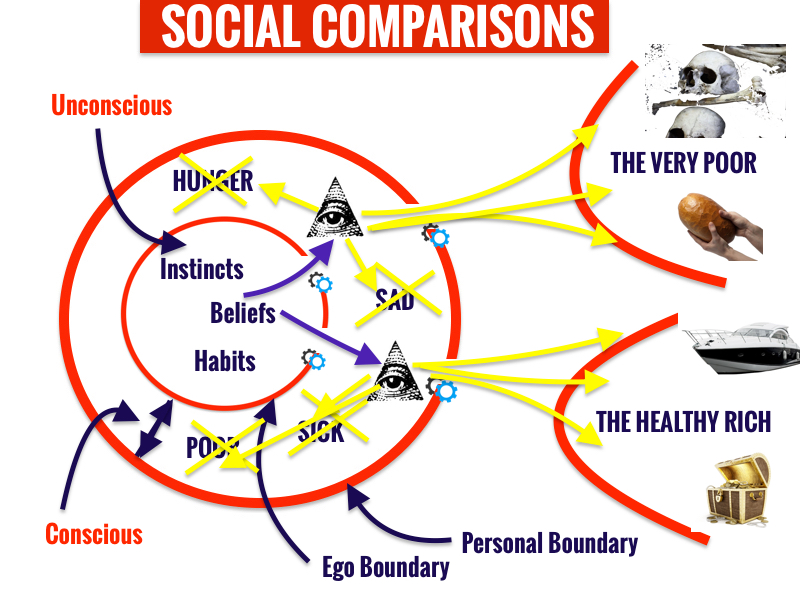This is a common one, and a good one with which to see that in spotting the social habits in another person, we have a method of estimating their current maturity level by way of which ones they most commonly use. This then gives us an indicator of two important things about intellectual attraction:
- How capable they are of being a partner who can truly remain in a committed relationship.
- How capable they are of being a partner with whom we can have the discipline, patience and skill to reach our life’s goals together.
The reason that I raise this now is that “upward and downward social comparisons” as a social habit is so easy to spot in conversation with our partners, that it would be a shame not to use that as a guide to their being moderately mature (at the neurotic level), but still having some work to do on themselves.
You’ve heard it many times and used it many times. My own mother used to say about our near-empty dinner table: “Remember that there are starving Ethiopians.” (At the time, there was extreme poverty and starvation in that country.) This downward social comparison likely made her feel better about our own poverty, and was well-intended for us to adopt for the same purpose, but did little to actually feed us the nourishment we needed.
This social habit causes us to look at others or groups of others who “have it worse” in order to dissociate ourselves from the similarities to them.
For example, when a man who has a tendency to be demeaning or disrespectful of his partner tells her that “at least I have never physically hit you,” he is doing a downward social comparison, but to her, this does not detract from the fact that he makes her feel abused with the emotional disrespect.
Or when a woman tells her partner who has just lost a job that she still wants to go on vacation even if he can’t afford it, and that if he doesn’t want to go that will be okay by her, he may not say anything about that, but it will be hurtful to him. When she picks up on this, she may say to him that “at least I’m not like most women, who want a fur coat or a yacht. I’m just saying that I already planned on this, and I want to go. I’ll pay my own way. You don’t need to go. It could be worse, you know?”
None of which is relieving to him, because what goes unsaid is that it is still a selfish thing for her to do, whether it is the demanding of luxury items, or the intention to go on vacations in which she leaves him behind because of his inability to pay, they are the same. Money and luxury are more important to her than who he is, and what his strivings are as a man.


